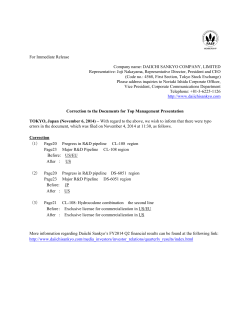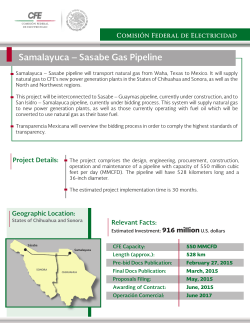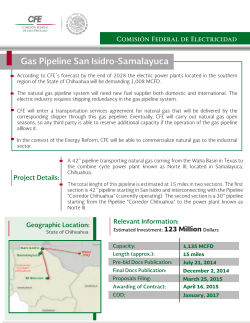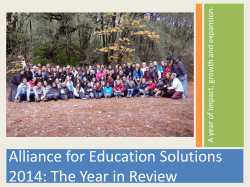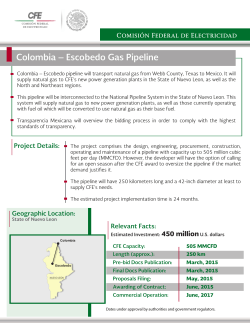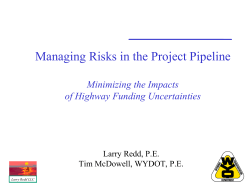
March 30, 2015 Dr. Jim Martin WCPSS, School
March 30, 2015 Dr. Jim Martin WCPSS, School Board Member It was brought to our attention that, in one of your recent Facebook posts, you are encouraging people to recognize that there is not a school-to-prison pipeline. Is this also the opinion of the other school board members and the school superintend? because we were deeply concerned by this post. While it is true that there are many systems and factors in society that are pushing young people into the prison system, it is critical that we acknowledge that our schools are a significant part of this pipeline. In your role as an elected Wake County School Board member, you are accountable to parents, students, educators and community members. It is important that you acknowledge that suspensions, referrals to law enforcement and other punitive approaches to discipline in Wake County schools, as in schools across the country, are contributing to a school-to-prison pipeline. The sentence “poverty to prison pipeline” suggests that poor, economically disadvantaged students cannot learn and or not capable of being academically successful. The education environment must consist of highly qualified administrators, teachers and resources needed to implement the interventions and teaching of the designed curriculum. The school system must have school and central office administrators, teachers, and school board members who believe that all students can learn. Schools must create and design programs, interventions and strategies that will eliminate the achievement gap. We will not eliminate the school-to-prison pipeline and the achievement gap if central office, school administrators, school board members, and teachers do not believe that all students can learn even if they are economically disadvantaged or poor. As a school board member, denying the existence of the school-to-prison pipeline in our society today will not eliminate the large number of suspensions of students of color and specifically African American students. The U.S. Departments of Education and Justice have acknowledged the existence of the school-to-prison pipeline on several occasions, including in the Department of Justice findings of their investigation in Meridian, Mississippi in 2011-2012, which you can read here: http://1.usa.gov/1FBnguL Researchers, as well as organizing and advocacy groups like ours, the Education Justice Alliance, the Youth Organizing Institute, NC HEAT, Concern Citizens for African American Children and the national Dignity in School Campaign, for years have documented and worked to raise awareness of the existence of the school-toprison pipeline. I am sure you have read many of their reports, but we’ll be happy to send you some recent ones, including a report by the Council of State Governments Justice Center found here: http://bit.ly/1jOYGqg. Because the school-to-prison pipeline is real, both the U.S. Departments of Education and Justice have issued Joint Federal School Discipline Guidance to make sure school districts know their legal civil rights obligations to discipline students without discriminating on the basis of race, color, or national origin. You can read more about the “Dear Colleague” Guidance letter issued here: http://1.usa.gov/1gDTBlO As we read your post on Facebook, where you encouraged people to acknowledge the poverty-to-prison pipeline, we gather that you would like to talk about the root causes of the problem, and as education organizers and activists, we welcome that. But we only ask that you first acknowledge the role our school policies and practices play. Sincerely, The Education Justice Alliance, the Youth Organizing Institute, NC HEAT, Concern Citizens for African American Children and the Dignity in Schools Campaign Fernando Martinez Email: Fernando@dignityinschools.org
© Copyright 2025
